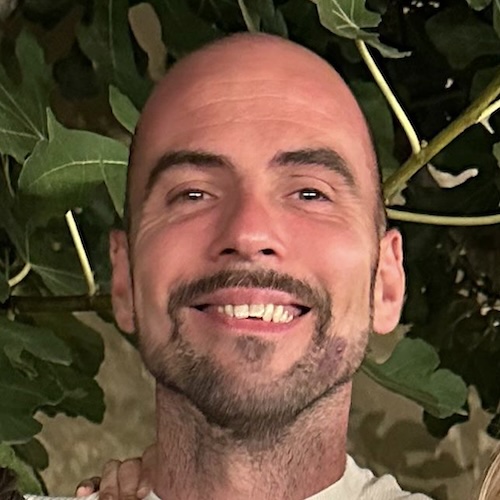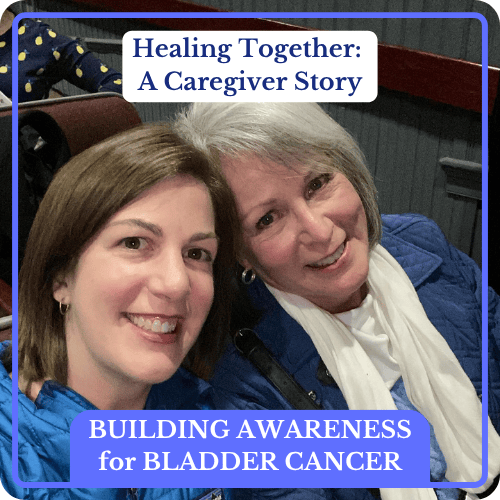Relying on My Faith and Family to Get Through Bladder Cancer: Jon’s Story
Jon spent decades as an expert in developing tech for cancer detection. He never imagined that his work would one day help unveil his own bladder cancer diagnosis. Jon’s story is both eye-opening and inspiring. His experience shows the significance of self-advocacy and risk-adapted treatment, and the evolving landscape of bladder cancer care.
Interviewed by: Keshia Rice
Edited by: Chris Sanchez
It all began with him noticing darkening urine and visible blood, which prompted a visit to his GP. The doctor conducted a CT scan, which revealed muscle-invasive bladder cancer, and later confirmed that it had already spread to nearby lymph nodes.
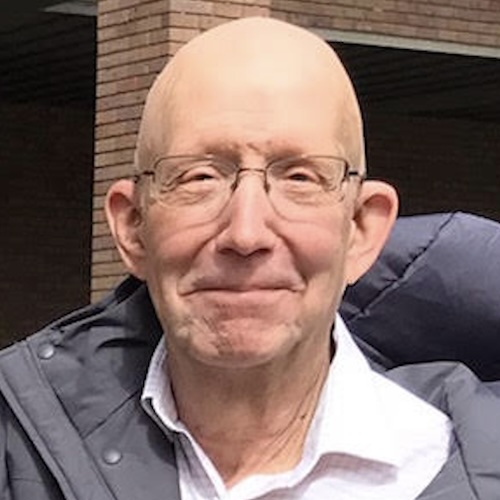
Rather than feeling overwhelmed and agonizing over worst-case scenarios, Jon chose to be proactive. He harnessed his natural curiosity as a researcher, focused on potential solutions, and delved into bladder cancer treatment options.
Navigating the healthcare system had its twists, including a referral to the University of Tennessee Medical Center, a development Jon views as a “God wink.” There, he experienced top-notch care and learned about promising new treatments that could potentially double survival rates. Jon’s story highlights the potential of bladder-sparing approaches if a complete response is achieved with first-line treatment, offering hope for improved quality of life.
Active in patient advocacy, Jon attends cancer conferences, championing the importance of patient voices in medical discussions. His journey exemplifies resilience, faith, and the power of informed decision-making.
Watch Jon’s video and read his story to find out more about:
- How his career in cancer tech paved the way for his own diagnosis
- The “God wink” that altered his treatment path
- What Jon’s story reveals about bladder-sparing treatments
- Why self-advocacy is crucial in bladder cancer care
- Jon’s inspiring role as a patient advocate at major cancer conferences
- Name:
- Jon T.
- Diagnosis:
- Locally Advanced Muscle-Invasive Bladder Cancer
- Symptoms:
- Darkening urine
- Blood in urine
- Dull right flank pain
- Treatments:
- Surgery: transurethral resection of bladder tumor (TURBT)
- Antibody-drug conjugate
- Chemotherapy


Thank you to Johnson & Johnson for supporting our patient education program. The Patient Story retains full editorial control over all content.
This interview has been edited for clarity and length. This is not medical advice. Please consult with your healthcare provider for treatment decisions.
- About Me
- How I Found Out I Had Bladder Cancer
- How I Reacted to My Diagnosis
- My Treatment Options
- I Started My Bladder Cancer Treatment
- Program Highlight: Bladder Cancer Breakthroughs 2025: New Treatments & Bladder-Sparing Advances
- I Attended Cancer Conferences as a Patient Advocate
- I Look Forward to Many Breakthroughs in Cancer Care
- Bladder Cancer Helped Me Feel and Appreciate the Love Around Me
Interviewed by:
Edited by: Chris Sanchez
My journey had many twists and turns, but I look at them as “God winks” that guided me in the right direction.
About Me
Hi, my name is Jon. I’m a bladder cancer survivor. I was diagnosed in 2023.
My journey has had many twists and turns, but I look at them as “God winks” that guided me in the right direction.


How I Found Out I Had Bladder Cancer
I actually spent decades working on technology to detect cancer. I never imagined that technology would one day help me detect that I had bladder cancer.
I had some darkening urine. I was on a business trip at the time. And on my return, I started to see blood. My wife prompted me to go see my GP, and I went to see him. He did a urine culture, but he saw the blood in my urine, and he immediately had me in for a CT that afternoon.
That’s how I discovered I had muscle-invasive bladder cancer.
I had anatomic imaging done, an MRI and a CT, which indicated that there was no spread. But here in Knoxville, I helped develop the PET/CT, and I wanted one done. So my oncologist ordered a PET/CT, and that found that the disease had spread to four local lymph nodes.
How I Reacted to My Diagnosis
Unfortunately, the way that managed care works, I discovered my urologist was going to have me in for a transurethral resection or TURBT the next day. But it turns out, I got a call that evening, and he was out of network.
He referred me to a colleague at the University of Tennessee Medical Center. Again, I look at that as a God wink, because the care that I’ve received at the University of Tennessee Medical Center has been fantastic.
In early 2023, when I was diagnosed, the outlook for muscle-invasive metastatic bladder cancer was bleak. I was given a prognosis of 16 months.
I guess for the first time, I was looking a bit at my mortality and thinking about getting my affairs in order.
I actually spent decades working on technology to detect cancer. I never imagined that technology would one day help me detect that I had bladder cancer.
My Treatment Options
I’m a researcher by nature. So I was looking at my options, and I spent a lot of time just figuring out, spending more time on what I would be doing and less on what might go wrong.
So that kept my mind occupied while the process continued.
I went to this doctor, prepared to ask for a specific type of treatment. But little did I know, at the same time, a top doctor was sharing news about a new treatment option for bladder cancer at a major conference.
He had a standing ovation because essentially the overall survival had doubled with that systemic treatment.
That would change everything.
I Started My Bladder Cancer Treatment
New research like this is increasingly giving bladder cancer patients like me more options.
I began treatment on December 11th, 2023.
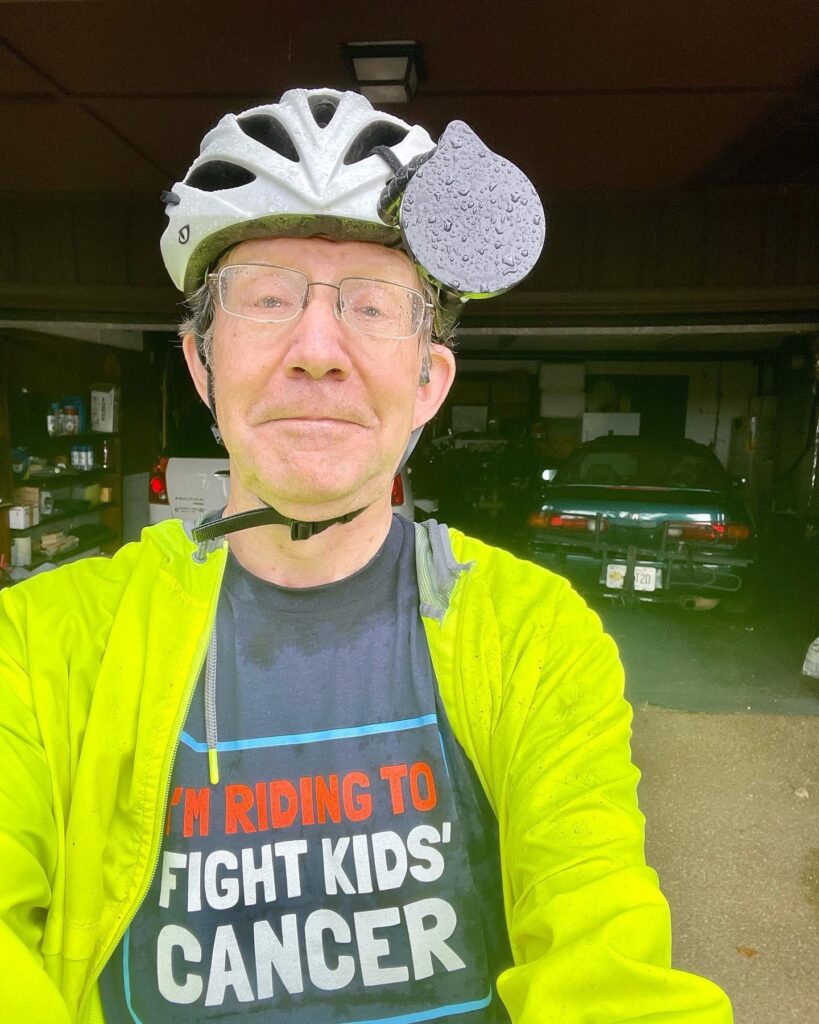
My Bladder Cancer Story Continues Below
Program Highlight: Bladder Cancer Breakthroughs 2025: New Treatments & Bladder-Sparing Advances

The Patient Story spoke with Dr. Ashish Kamat from MD Anderson Cancer Center. Dr. Kamat is one of the world’s top bladder cancer specialists.
Bladder cancer care is evolving rapidly, with new treatments offering the potential for longer survival and better quality of life — including the possibility of preserving the bladder.
In this expert-led discussion, Dr. Kamat breaks down the latest in research, emerging therapies, and what patients and care partners need to know now to make informed treatment decisions. He wants patients and their families to speak up and ask more questions of their own doctors.

Dr. Kamat: Patients will come in and say, “This is what I was told. I have no choice. I have to do this.” And first off, every patient has a choice. So when I hear that, that itself makes me not very happy because patients always have a choice. Our role is to guide them.
I really encourage patients who are faced with the paradigm or the conundrum of having muscle-invasive disease to ask their physician, “Hey, I know that this is standard of care for me, but if it doesn’t work, what else do you have available?” Because there’s a lot of stuff that’s available.
So there are biomarkers that people have developed trying to help us understand which patients may respond so well to the systemic therapy that we don’t have to take the bladder out. Again, this is being studied. It’s not something that I can say a patient should go to their physician and say, “Hey, I have this biomarker. I don’t want my bladder out.” No, it’s not ready for prime time. But we’re looking at those.
The advantage of taking part in the clinical trial for every patient is that they are at the forefront of the research, but also, they get better care, right? Because if a patient is on a clinical trial, by definition, they are being followed very, very closely.
It’s very, very important for us to reach out to patients, but if we don’t do that, and we don’t get patients and their carers to be educated and involved and actually understand the disease process, then we can’t get them the best chance of a cure. It’s not just the surgery, it’s not just the medication. It’s not just the radiation, but it’s a true partnership. And in some ways, it’s a selfish motive to get patients more educated because it helps me give them the best results.
For the rest of this interview, watch our program replay ON DEMAND.
Learn what’s changing, how it impacts treatment decisions, and what it all means for patients today.
Back to My Bladder Cancer Story
More needs to be done to increase survival rates for bladder cancer. I believe this is on the horizon.

I Attended Cancer Conferences as a Patient Advocate
At the American Society of Clinical Oncology (ASCO) Annual Meetings, you have 40,000 oncologists gathered, all working on all the different cancers. So you see all these incredible scientists and doctors working for you. But you also see how patient care is thought about.
That aspect of including the voice of patients in these major meetings was a revelation to me. And so working as an advocate has been very rewarding.
I Look Forward to Many Breakthroughs in Cancer Care
More needs to be done to increase survival rates for bladder cancer. I believe this is on the horizon.
I’m not quite two years in yet. I’ll be two years in this September, so who knows what’s coming down the road. But I believe that this is an exciting time.
Bladder Cancer Helped Me Feel and Appreciate the Love Around Me
You don’t appreciate all the love that’s actually there for you until you go through a situation like this. So I definitely am more sensitive to the love around me, and what I consider the love of Christ as well.
Meeting all these people on their cancer journeys has been a real pleasure.
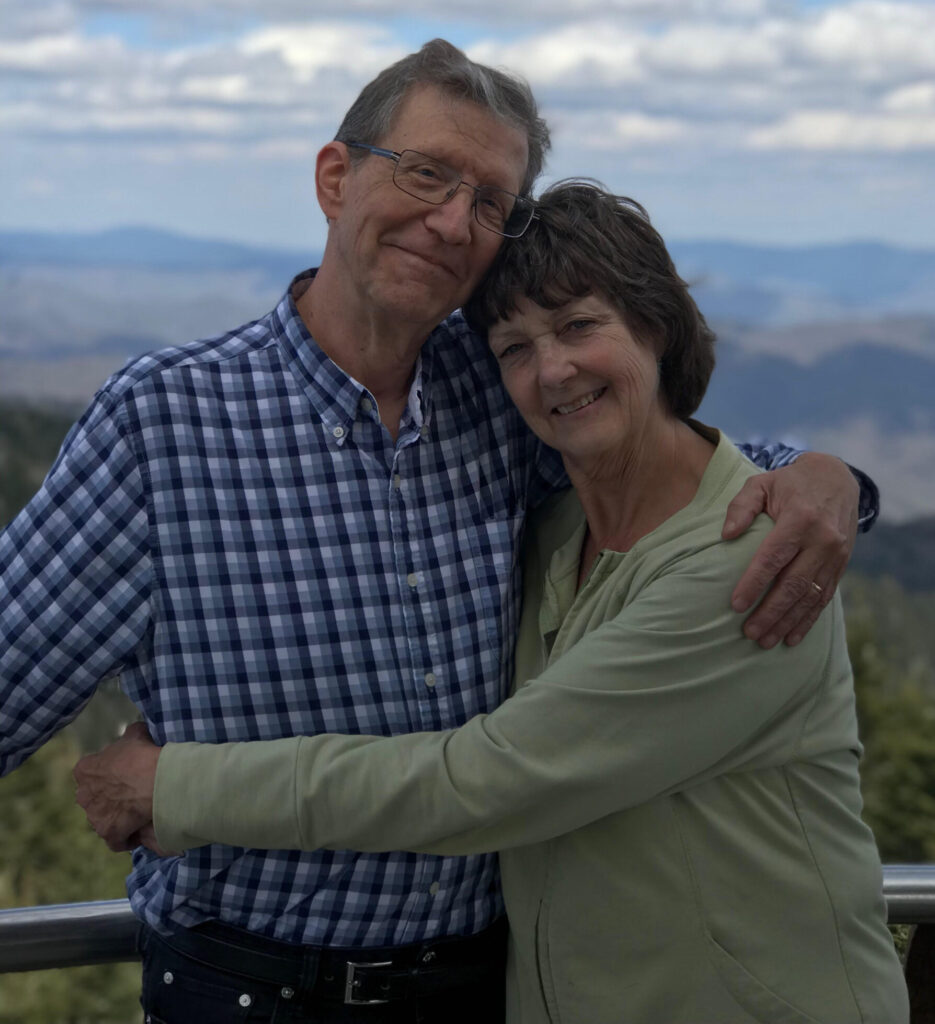
I definitely am more sensitive to the love around me, and what I consider the love of Christ as well.
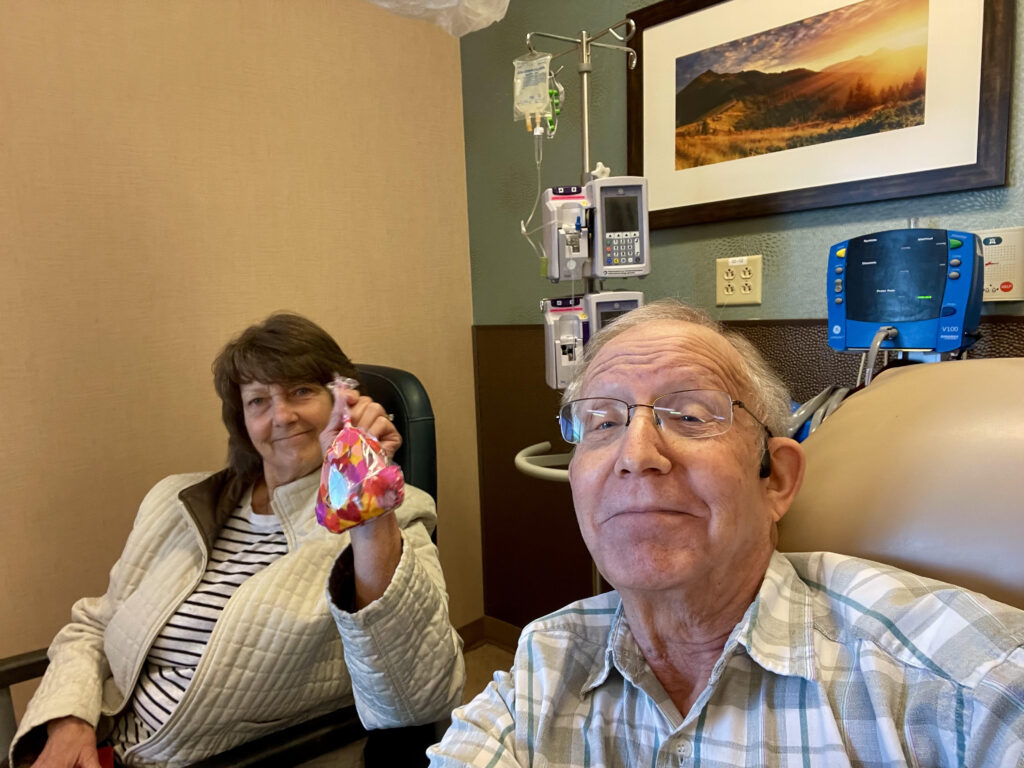

Special thanks again to Johnson & Johnson for supporting our patient education program. The Patient Story retains full editorial control over all content.

Inspired by Jon's story?
Share your story, too!
More Bladder Cancer Stories
Laurent Gemenick, Bladder Cancer
Symptom: Presence of blood in urine
Treatment: Surgery: transurethral resection of bladder tumor or TURBT
Jon T., Locally Advanced Muscle-Invasive Bladder Cancer
Symptom: Darkening urine, blood in urine, dull right flank pain
Treatments: Surgery(transurethral resection of bladder tumor or TURBT), antibody-drug conjugate, chemotherapy
Michael V., Bladder Cancer (Non-Invasive High-Grade Papillary Urothelial Carcinoma), Stage 1
Symptoms: Frequent urination, burning sensation when urinating
Treatments: Surgery (transurethral resection of bladder tumor or TURBT), immunotherapy (Bacillus Calmette-Guérin or BCG treatment)
Dorinda G., Bladder Cancer
Symptom: A significant amount of blood in the urine
Treatments: Surgery (transurethral resection of bladder tumor/TURBT, surgery for papillary lesion), immunotherapy (BCG), chemotherapy
Healing Together: A Mother and Daughter Navigate High-Grade Bladder Cancer
Mary Beth’s story about caregiving starts with an important awareness message about female bladder cancer symptoms.
Danny G., Non-Muscle Invasive Bladder Cancer
Symptoms: Fatigue, back pain, erectile dysfunction, nausea
Treatments: Surgery (transurethral resection of bladder tumor or TURBT), chemotherapy, immunotherapy

